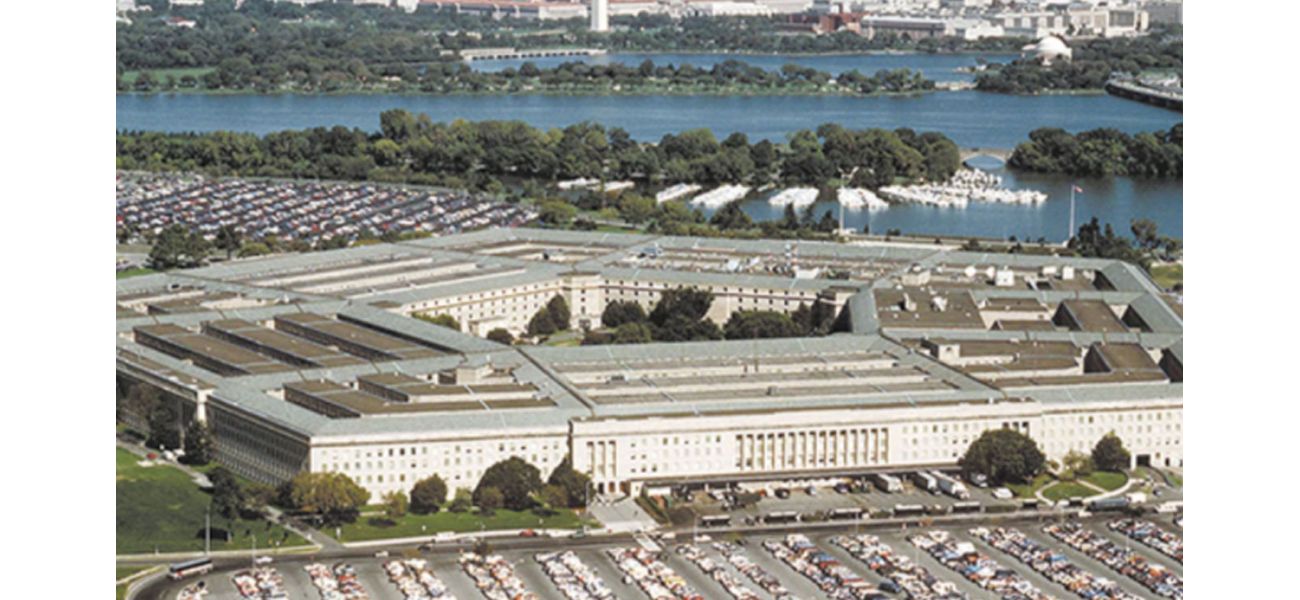Military leaders respond to President Trump's controversial choice for secretary of defense with strong disapproval.
Senior military leaders worry Biden's national security team will disrupt global order.
November 13th 2024.

Shortly after President-elect Donald Trump announced Pete Hegseth as his selection for Secretary of Defense, I began receiving messages and calls from current and former senior military commanders, eager to share their reactions. Their responses ranged from "ridiculous" to "an effing nightmare," with one common theme: concern about the potential impact of this and other senior national security appointments on US foreign policy.
To be clear, these were not partisan opinions. These were experienced commanders who have served under both President Trump and President Joe Biden. And while their critiques were not personal attacks on Hegseth himself, their central worry was that the President is building a team that could implement massive and lasting changes to America's international policies.
A retired four-star general shared with CNN, "There's no serious experience in the business of running the Pentagon or the national security staff processes, but I'm trying to retain an open mind and hope that fresh ideas could improve things that get pretty stale." He continued, "That said, the common denominator is clearly loyalty and while some loyalty is essential, slavish fealty is dangerous. Looking at all the announcements to date, we could end up with one mind controlling many hands. And I've never believed that one mind, any mind, does that as well as diversity of thought."
The 2024 US election may prove to have a significant impact not only on America's foreign policy but also on its role in the world. President Trump has repeatedly expressed his readiness to fulfill his "America First" agenda, which includes ending US involvements abroad and changing or diminishing treaty relationships deemed against American interests. This departure from the traditional bipartisan worldview has been a hallmark of his presidency. And Hegseth, from his position at Fox News, has been a vocal advocate of this agenda.
In both domestic and international politics, President Trump has shown a transactional approach to US relations, one that often overlooks shared values or history. He has repeatedly stated that the US is no better or worse than its adversaries. This point was evident when, during an interview with Bill O'Reilly in 2017, Trump responded to the host's reminder that "Putin is a killer" by saying, "You think we're so innocent?" And it was echoed during a rally in Michigan when he stated, "In many cases, our allies are worse than our so-called enemies."
This view of America's relationships with allies and adversaries suggests that Trump believes he can make mutually beneficial deals for the US with nations like Russia and China, just as easily as with traditional allies in Europe and Asia. However, this fails to recognize that these adversaries see it as in their strategic interests to weaken the US and the American-led global order. We've seen this play out, from Russia and China's cooperation with North Korea and Iran to the signing of a mutual defense treaty between Moscow and Pyongyang.
Is it possible for Trump to make a deal that would persuade China and Russia, along with North Korea and Iran, to abandon their strategic interests? Theoretically, yes, but former British prime minister Lord Palmerston would disagree. He famously stated that only interests, not allies, are "eternal and perpetual."
So what does this mean for US foreign policy in the near future? According to Trump's former senior advisers, it could mean the end of aid to Ukraine to defend itself against Russia. "If I were Ukraine, I'd be very worried," former National Security Adviser John Bolton shared with me. He added, "If everything is a deal, then what's another 10 percent of Ukrainian territory if it brings peace, kind of thing?" The same concern could be shared by Taiwan, as none of Trump's former senior advisers believe he would defend the island against a Chinese invasion, as Biden has vowed to do publicly.
US defense treaties could also be on the table. Some of Trump's advisers have suggested that he might attempt to exit NATO or, if prevented by new legislation, signal that as commander in chief, he would not uphold NATO's Article 5, which commits members to defend each other militarily. This was evident when Trump stated in February that Russia could "do whatever the hell they want" to NATO countries that don't pay their fair share.
Only time will tell how these potential changes to US foreign policy will play out, but one thing is clear: the 2024 election could have a significant impact on America's role in the world.
Shortly after President-elect Donald Trump announced his decision to appoint Fox News host and Army veteran Pete Hegseth as Secretary of Defense, I received messages and calls from current and former senior military commanders with their reactions. Some were quick to express their disapproval, calling the decision "ridiculous" and "an effing nightmare." It's worth noting that these were not partisan viewpoints, but rather the opinions of commanders who have served under both President Trump and President-elect Joe Biden.
Their critiques were not directed at Hegseth personally, but rather at the larger picture of Trump's national security appointments. They were concerned about the potential for significant and lasting changes to US foreign policy under this new team. One retired four-star general summed it up by saying, "There's no serious experience in running the Pentagon or national security staff processes. However, I'm trying to keep an open mind and hope that fresh ideas can improve things that have become stagnant."
But even with this hope for new perspectives, the general expressed concern about the emphasis on loyalty in these appointments. While some loyalty is important, he warned against "slavish fealty," and stressed the importance of diversity of thought in decision-making. This is especially crucial because the 2024 US election could have a major impact not just on foreign policy, but on America's role in the world.
President Trump has consistently stated his commitment to his "America First" agenda, which includes ending US involvement in foreign conflicts and reevaluating treaty relationships that he believes are not in America's best interests. Hegseth, in his role as a Fox News host, has been a vocal supporter of this agenda. However, some are concerned that Trump's transactional approach to international relations does not take into account shared values or history.
This was made apparent in Trump's response to Bill O'Reilly's reminder that Putin is a "killer," to which Trump replied, "You think we're so innocent?" He has also stated that America's allies may be "worse than our so-called enemies." This view ignores the strategic interests of countries like Russia and China, who have aligned themselves with nations like North Korea and Iran, and have shown a willingness to weaken the US and the global order it leads.
Some may argue that Trump's approach could lead to mutually beneficial agreements with these adversaries, but others point out that this neglects the fact that these countries have a vested interest in weakening the US. Former British prime minister Lord Palmerston famously said that only interests, not allies, are "eternal and perpetual."
So what does this mean for US foreign policy? According to Trump's former senior advisers, his transactional worldview could have serious implications for countries like Ukraine and Taiwan. Some believe that Trump would end aid to Ukraine in its defense against Russia, and that Taiwan should be concerned about its own security. While Biden has publicly vowed to defend Taiwan militarily, Trump's former advisers do not believe he would do the same.
Even US defense treaties could be up for negotiation. Some of Trump's advisers have suggested that he may try to exit NATO, or if he is unable to do so, he may refuse to abide by NATO's Article 5, which commits members to defend each other militarily. This was made clear when Trump stated in February that Russia could "do whatever the hell they want" to NATO countries that do not fulfill their financial commitments.
It is clear that Trump's approach to foreign policy is vastly different from his predecessors, and could have significant consequences for America's relationships with its allies and adversaries. As the 2024 election approaches, it will be crucial to see how this perspective plays out on the global stage.
To be clear, these were not partisan opinions. These were experienced commanders who have served under both President Trump and President Joe Biden. And while their critiques were not personal attacks on Hegseth himself, their central worry was that the President is building a team that could implement massive and lasting changes to America's international policies.
A retired four-star general shared with CNN, "There's no serious experience in the business of running the Pentagon or the national security staff processes, but I'm trying to retain an open mind and hope that fresh ideas could improve things that get pretty stale." He continued, "That said, the common denominator is clearly loyalty and while some loyalty is essential, slavish fealty is dangerous. Looking at all the announcements to date, we could end up with one mind controlling many hands. And I've never believed that one mind, any mind, does that as well as diversity of thought."
The 2024 US election may prove to have a significant impact not only on America's foreign policy but also on its role in the world. President Trump has repeatedly expressed his readiness to fulfill his "America First" agenda, which includes ending US involvements abroad and changing or diminishing treaty relationships deemed against American interests. This departure from the traditional bipartisan worldview has been a hallmark of his presidency. And Hegseth, from his position at Fox News, has been a vocal advocate of this agenda.
In both domestic and international politics, President Trump has shown a transactional approach to US relations, one that often overlooks shared values or history. He has repeatedly stated that the US is no better or worse than its adversaries. This point was evident when, during an interview with Bill O'Reilly in 2017, Trump responded to the host's reminder that "Putin is a killer" by saying, "You think we're so innocent?" And it was echoed during a rally in Michigan when he stated, "In many cases, our allies are worse than our so-called enemies."
This view of America's relationships with allies and adversaries suggests that Trump believes he can make mutually beneficial deals for the US with nations like Russia and China, just as easily as with traditional allies in Europe and Asia. However, this fails to recognize that these adversaries see it as in their strategic interests to weaken the US and the American-led global order. We've seen this play out, from Russia and China's cooperation with North Korea and Iran to the signing of a mutual defense treaty between Moscow and Pyongyang.
Is it possible for Trump to make a deal that would persuade China and Russia, along with North Korea and Iran, to abandon their strategic interests? Theoretically, yes, but former British prime minister Lord Palmerston would disagree. He famously stated that only interests, not allies, are "eternal and perpetual."
So what does this mean for US foreign policy in the near future? According to Trump's former senior advisers, it could mean the end of aid to Ukraine to defend itself against Russia. "If I were Ukraine, I'd be very worried," former National Security Adviser John Bolton shared with me. He added, "If everything is a deal, then what's another 10 percent of Ukrainian territory if it brings peace, kind of thing?" The same concern could be shared by Taiwan, as none of Trump's former senior advisers believe he would defend the island against a Chinese invasion, as Biden has vowed to do publicly.
US defense treaties could also be on the table. Some of Trump's advisers have suggested that he might attempt to exit NATO or, if prevented by new legislation, signal that as commander in chief, he would not uphold NATO's Article 5, which commits members to defend each other militarily. This was evident when Trump stated in February that Russia could "do whatever the hell they want" to NATO countries that don't pay their fair share.
Only time will tell how these potential changes to US foreign policy will play out, but one thing is clear: the 2024 election could have a significant impact on America's role in the world.
Shortly after President-elect Donald Trump announced his decision to appoint Fox News host and Army veteran Pete Hegseth as Secretary of Defense, I received messages and calls from current and former senior military commanders with their reactions. Some were quick to express their disapproval, calling the decision "ridiculous" and "an effing nightmare." It's worth noting that these were not partisan viewpoints, but rather the opinions of commanders who have served under both President Trump and President-elect Joe Biden.
Their critiques were not directed at Hegseth personally, but rather at the larger picture of Trump's national security appointments. They were concerned about the potential for significant and lasting changes to US foreign policy under this new team. One retired four-star general summed it up by saying, "There's no serious experience in running the Pentagon or national security staff processes. However, I'm trying to keep an open mind and hope that fresh ideas can improve things that have become stagnant."
But even with this hope for new perspectives, the general expressed concern about the emphasis on loyalty in these appointments. While some loyalty is important, he warned against "slavish fealty," and stressed the importance of diversity of thought in decision-making. This is especially crucial because the 2024 US election could have a major impact not just on foreign policy, but on America's role in the world.
President Trump has consistently stated his commitment to his "America First" agenda, which includes ending US involvement in foreign conflicts and reevaluating treaty relationships that he believes are not in America's best interests. Hegseth, in his role as a Fox News host, has been a vocal supporter of this agenda. However, some are concerned that Trump's transactional approach to international relations does not take into account shared values or history.
This was made apparent in Trump's response to Bill O'Reilly's reminder that Putin is a "killer," to which Trump replied, "You think we're so innocent?" He has also stated that America's allies may be "worse than our so-called enemies." This view ignores the strategic interests of countries like Russia and China, who have aligned themselves with nations like North Korea and Iran, and have shown a willingness to weaken the US and the global order it leads.
Some may argue that Trump's approach could lead to mutually beneficial agreements with these adversaries, but others point out that this neglects the fact that these countries have a vested interest in weakening the US. Former British prime minister Lord Palmerston famously said that only interests, not allies, are "eternal and perpetual."
So what does this mean for US foreign policy? According to Trump's former senior advisers, his transactional worldview could have serious implications for countries like Ukraine and Taiwan. Some believe that Trump would end aid to Ukraine in its defense against Russia, and that Taiwan should be concerned about its own security. While Biden has publicly vowed to defend Taiwan militarily, Trump's former advisers do not believe he would do the same.
Even US defense treaties could be up for negotiation. Some of Trump's advisers have suggested that he may try to exit NATO, or if he is unable to do so, he may refuse to abide by NATO's Article 5, which commits members to defend each other militarily. This was made clear when Trump stated in February that Russia could "do whatever the hell they want" to NATO countries that do not fulfill their financial commitments.
It is clear that Trump's approach to foreign policy is vastly different from his predecessors, and could have significant consequences for America's relationships with its allies and adversaries. As the 2024 election approaches, it will be crucial to see how this perspective plays out on the global stage.
[This article has been trending online recently and has been generated with AI. Your feed is customized.]
[Generative AI is experimental.]
0
0
Submit Comment





